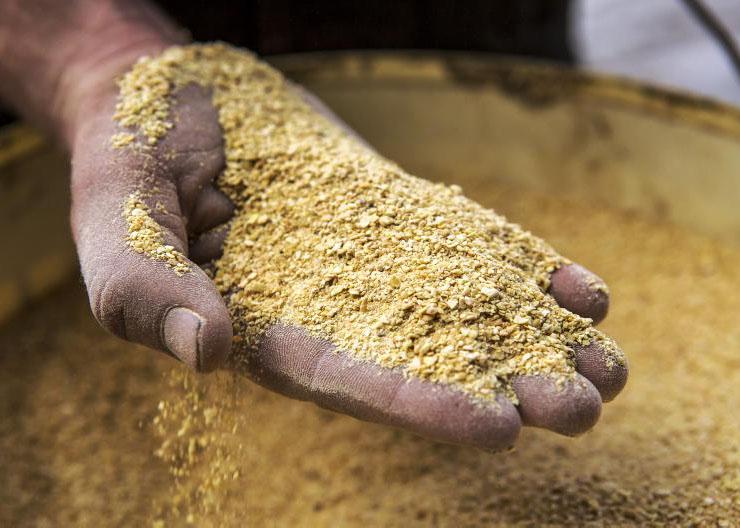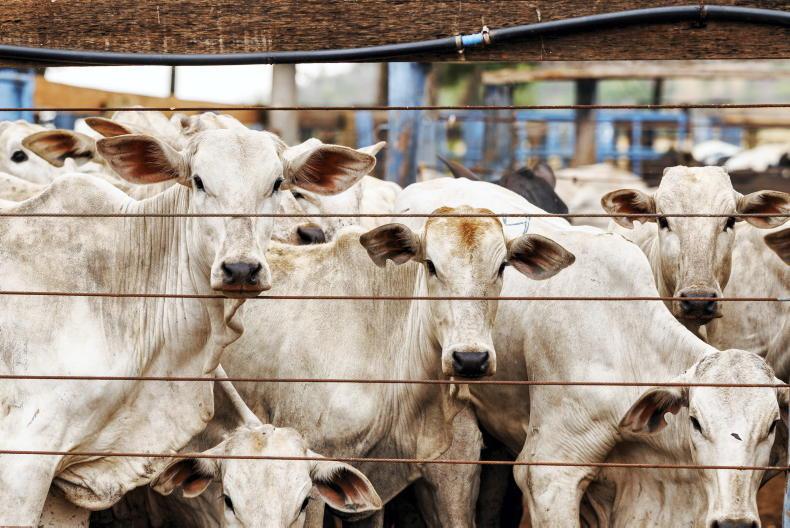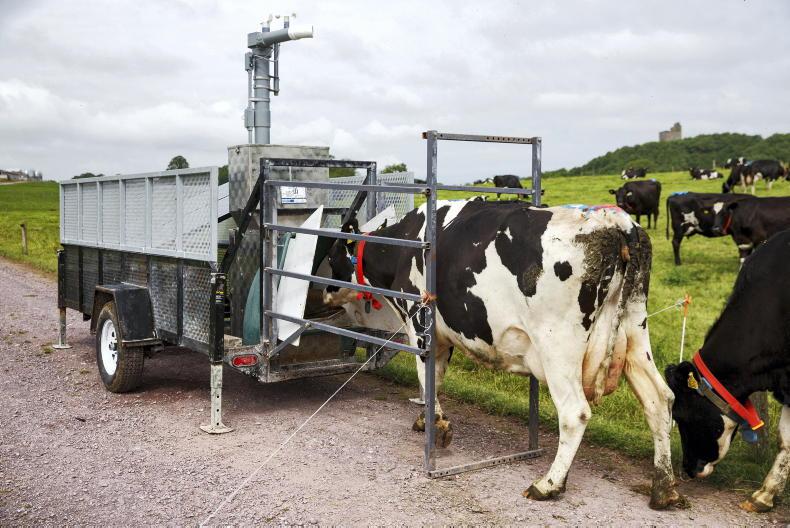Russell Hume, which had been under investigation by the Food Standards Agency (FSA) and Food Standards Scotland (FSS), has today gone into administration.
This follows initial concerns over best before dates on labelling and more recent reports on ITV that Russell Hume was allegedly relabelling imported beef as British.
There was widespread speculation in the trade when the investigation was widened beyond Russell Hume to other cutting plants and cold stores that there could be more involved than altering use-by dates.
In response to the allegation that they were relabelling foreign beef as British, Russell Hume told ITV that “investigations into Russell Hume are related to procedures and processes relating to use-by dates” and that “we do not recognise the allegations made in the programme, but in any case we continue to work closely with the FSA in resolving this matter".
On the decision to go into administration, they said that “we will continue to work with the FSA with regards to the issues it raised, but we still feel its action has been out of all proportion to the concerns it says it has identified”.
Horsemeat
Five years ago, the industry was rocked when horsemeat instead of beef was found in burgers. Then, the industry was blamed for not asking questions about the integrity of some supplies and only focusing on price.
Supermarkets took a share of the blame as well, with their Dutch auction model driving prices so low that suppliers became so focused on price that, in some cases, the integrity of the product was neglected.
Since then, the supermarkets and large burger chains have been ruthless in monitoring their supply lines. In some cases, they go as far as having a contact number displayed in the factory to enable whistle blowers to report any wrongdoing.
The UK has a network of what are described as catering butchers. They buy beef from the meat factories or secondary processors plus importers and distribute it to individual restaurants and pub chains across the UK. A similar model operates in Ireland. It is some of these UK companies that are currently under investigation by FSA and FSS.
Scope for fraud
The wider catering and wholesale beef industry certainly has scope for fraud by unscrupulous businesses. In this process, there is plenty of opportunity if an unscrupulous business choses to switch labels.
By law, all product produced in the EU must carry a born in, slaughtered in and processed label and a batch code that enables the product be traced back to its farm of origin. That works perfectly, but, ultimately, it is only the label that can be traced.
If the steaks are removed from the original box that, for example, left Ireland, properly labelled, and put in a new box with new labelling, the end user will be none the wiser. It would of course be blatant fraud, but there is no risk to public health and an Irish steak will stand favourable comparison with any when served in a restaurant.
It will also be significantly cheaper than one that originates in the UK and carrying the Red Tractor branding. If a business chooses to engage in this type of fraud, they can make large profits. Irish beef is cheaper than UK beef; wholesale prices for steaks will be €1/kg less than their UK counterparts. There is even more money to be made in using cheaper sources of beef than Ireland.
Lower beef prices
For example, after Ireland, the biggest suppliers of beef to the UK in 2017 were the Netherlands, who sent 20,686t, according to the AHDB, and Poland, who sent 19,467t. Last week, R3 young bull prices were €3.29/kg in the Netherlands and €3.52/kg in Poland, while an R3 steer was making the equivalent of €4.20/kg in Scotland.
All of this beef is produced to the same EU standard, but several EU countries have lower cattle prices than the UK. If beef was taken from these cattle and represented as UK, or in particular PGI Scotch branded, huge profits could be made from the fraud. Even more money could be made in this way by using beef from Brazil, where cattle were the equivalent of just €2.15/kg last week and 2,457t of beef was imported into the UK in 2017.
Food fraud was estimated by PWC to be a multibillion global industry. The whistle-blower, in speaking to ITV, is reported as having said: “It’s what the industry does and has been doing for a long time.”
It is something that is speculated on and certainly it has the potential to exist and to earn a lot of money for an unscrupulous business that engages in that activity.
It works on the same principle as the horsemeat scandal did, taking a cheaper product that looks and seems the same and pass it off as a higher-value branded version. In the process, the integrity of the industry is damaged even if there is no risk to public health.
The FSA / FSS investigations are ongoing, but they have not commented on the type of labelling issues beyond use-by dates being altered.
Read more
Meat recalled in UK as part of food standards investigation
Meat industry investigation widens
Major review of UK meat cutting plants and cold stores
Russell Hume, which had been under investigation by the Food Standards Agency (FSA) and Food Standards Scotland (FSS), has today gone into administration.
This follows initial concerns over best before dates on labelling and more recent reports on ITV that Russell Hume was allegedly relabelling imported beef as British.
There was widespread speculation in the trade when the investigation was widened beyond Russell Hume to other cutting plants and cold stores that there could be more involved than altering use-by dates.
In response to the allegation that they were relabelling foreign beef as British, Russell Hume told ITV that “investigations into Russell Hume are related to procedures and processes relating to use-by dates” and that “we do not recognise the allegations made in the programme, but in any case we continue to work closely with the FSA in resolving this matter".
On the decision to go into administration, they said that “we will continue to work with the FSA with regards to the issues it raised, but we still feel its action has been out of all proportion to the concerns it says it has identified”.
Horsemeat
Five years ago, the industry was rocked when horsemeat instead of beef was found in burgers. Then, the industry was blamed for not asking questions about the integrity of some supplies and only focusing on price.
Supermarkets took a share of the blame as well, with their Dutch auction model driving prices so low that suppliers became so focused on price that, in some cases, the integrity of the product was neglected.
Since then, the supermarkets and large burger chains have been ruthless in monitoring their supply lines. In some cases, they go as far as having a contact number displayed in the factory to enable whistle blowers to report any wrongdoing.
The UK has a network of what are described as catering butchers. They buy beef from the meat factories or secondary processors plus importers and distribute it to individual restaurants and pub chains across the UK. A similar model operates in Ireland. It is some of these UK companies that are currently under investigation by FSA and FSS.
Scope for fraud
The wider catering and wholesale beef industry certainly has scope for fraud by unscrupulous businesses. In this process, there is plenty of opportunity if an unscrupulous business choses to switch labels.
By law, all product produced in the EU must carry a born in, slaughtered in and processed label and a batch code that enables the product be traced back to its farm of origin. That works perfectly, but, ultimately, it is only the label that can be traced.
If the steaks are removed from the original box that, for example, left Ireland, properly labelled, and put in a new box with new labelling, the end user will be none the wiser. It would of course be blatant fraud, but there is no risk to public health and an Irish steak will stand favourable comparison with any when served in a restaurant.
It will also be significantly cheaper than one that originates in the UK and carrying the Red Tractor branding. If a business chooses to engage in this type of fraud, they can make large profits. Irish beef is cheaper than UK beef; wholesale prices for steaks will be €1/kg less than their UK counterparts. There is even more money to be made in using cheaper sources of beef than Ireland.
Lower beef prices
For example, after Ireland, the biggest suppliers of beef to the UK in 2017 were the Netherlands, who sent 20,686t, according to the AHDB, and Poland, who sent 19,467t. Last week, R3 young bull prices were €3.29/kg in the Netherlands and €3.52/kg in Poland, while an R3 steer was making the equivalent of €4.20/kg in Scotland.
All of this beef is produced to the same EU standard, but several EU countries have lower cattle prices than the UK. If beef was taken from these cattle and represented as UK, or in particular PGI Scotch branded, huge profits could be made from the fraud. Even more money could be made in this way by using beef from Brazil, where cattle were the equivalent of just €2.15/kg last week and 2,457t of beef was imported into the UK in 2017.
Food fraud was estimated by PWC to be a multibillion global industry. The whistle-blower, in speaking to ITV, is reported as having said: “It’s what the industry does and has been doing for a long time.”
It is something that is speculated on and certainly it has the potential to exist and to earn a lot of money for an unscrupulous business that engages in that activity.
It works on the same principle as the horsemeat scandal did, taking a cheaper product that looks and seems the same and pass it off as a higher-value branded version. In the process, the integrity of the industry is damaged even if there is no risk to public health.
The FSA / FSS investigations are ongoing, but they have not commented on the type of labelling issues beyond use-by dates being altered.
Read more
Meat recalled in UK as part of food standards investigation
Meat industry investigation widens
Major review of UK meat cutting plants and cold stores










SHARING OPTIONS